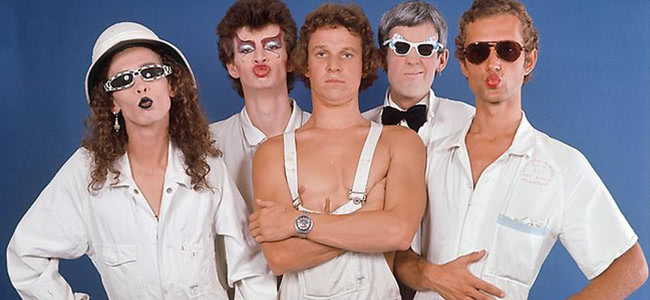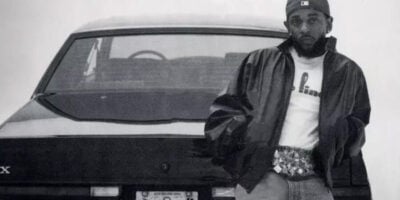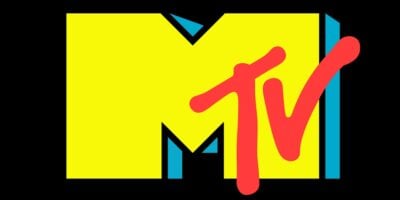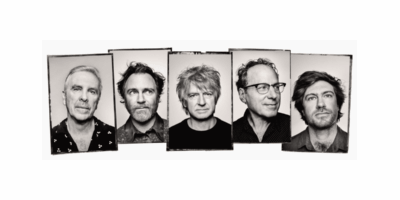With a dangerous look and a deadlier sound, the Skyhooks were always poised for greatness and boy did they deliver, becoming arguably the biggest band in Australia during the ’70s and cementing a place as icons of Aussie rock.
With a string of hit singles and classic albums, bearing cheeky titles like ‘Ego Is Not a Dirty Word’ and ‘You Just Like Me ‘Cos I’m Good in Bed’, the Skyhooks were beloved by the Australian record-buying public.
Bolstering their profile even further was a ‘Blur vs Oasis’-style media battle with fellow Australian glam rockers Sherbet. “You were either a Sherbet fan or you’re a Skyhooks fan,” guitarist Bob “Bongo” Starkie tells Tone Deaf.
Tone Deaf recently caught up with the Skyhooks axeman to discuss the band’s 40-year legacy as they celebrate the release of Hits’N’Riffs, a new compilation featuring remastered versions of some of the band’s most famous songs.
First Impressions
“My brother had been playing in bands for a long time. He used to play in a band called the King Bees with Joe Camilleri in the early days and then he was playing in a band called Lipp Arthur and the Double Decker Bros and they would kind of play every now and then.
And it was just after my 21st birthday, I was given a stereo cassette recorder, which was a whole new thing back then, and he said, ‘Look, I’ve got this gig to do, it’s out in the outer suburbs and can you give me a lift?’ because he didn’t have a car and I had a van.
I said, ‘Sure and I’ll tell you what, I’ll bring out my cassette recorder and I’ll record it.’ So that’s what I did and this gig was his last gig, he was heading off with Joe Camilleri to back a stripper up the West Coast of Australia [laughs]
And this gig was great and I loved the band and there were some great songs. I remember getting really blown away by ‘Carlton’, it had a fantastic riff in it. On the way home I said, ‘Wow, do you think I could audition for the band?’ And he said give it a shot, so that’s what I did.”
The Play-Off
“At that time I could hardly even hold a plectrum. I’d been playing guitar but it was still early days. Anyhow, Greg said give it a shot and so I was in. Then the other guitarist moved on not long after and that was Peter Ingliss, he was a great guitarist but he didn’t want to frock up and wear the gear.
So he went his way and we got some other guy, I can’t remember his name, and then we got Red. Red was actually living in the same house as Steve Hill, who was the singer. He came to a party we were playing in Carlton, liked what he heard, and he came on board.
Then I was placed in this insidious position where I had to have a play-off with this other guy and was nearly not even in the band. Anyhow, I managed to get the points on the board and that was the grant start for me.”
The Birth Of The Skyhooks
“Things started to move quite quickly then and we ended up playing Sunbury and then Steve saw himself on TV and didn’t like what he saw or had a momentary lapse of insecurity and called up Greg and said, ‘Look, I’m out of the band, I’m holding everyone back blah blah blah.’
And no sooner than he hung up that Greg called Shirl and asked him to join the band. It happened overnight and we went from a band that sounded quite ballsy, because Steve Hill had a deep voice, to Shirl who had a voice like Daffy Duck on speed.
It was a whole different sound and a much more recordable sound that just mixed up really well. And that was the birth of the Skyhooks sound as you know it.”
And then it moved on pretty fast from there because we started getting a bit of popularity, we starting to get reasonably tight, Ross Wilson loved the band and he was looking for someone to produce.
He loved the lyrics and we had quite a body of work by that time. By the time we started doing Living in the 70’s, all the tunes for Ego were already in the set. He had a lot to work with and went to town and we made that fantastic first record.
It sounded really fresh and it just started taking off. The next two years was just like riding that hurricane.”
No Sleep ‘Til Sunbury
“I think when we played Sunbury the year later, it was huge. Instead of being shitkickers on the afternoon stage or whatever, we were up with the headliners and it went off. We had the full light show and the place went berserk.
Shirl was really good, he was a natural on stage, and that audience is used to hearing Billy Thorpe, they’re a big, beer-swilling, boogie audience and when we first got on stage they were throwing crap at us and a beer can hit my little finger and I thought, ‘Oh man, how am I gonna play?’
But as the set went on and Shirl got hit with a whole bunch of mud and he said, ‘Oh well, good luck to you. Mud doesn’t hurt and anyway my dry cleaning’s tax deductible so hah hah hah.’ He gave as good as he got and the show just kept on building and building.
We ended up giving two encores. So we stole the last Sunbury and blew everyone off the stage, basically, because we were just tight and colourful and it just went off. That was when I knew we were onto something and things immediately starting cooking from that point on.”
The Countdown Effect
The record went nuts, we started doing gigs up in Sydney and things started to move up there as well. So that was really a start point, but there were some magic moments. In the early days we were playing to uni students and that sort of audience.
When the record came out and we got on Countdown, all of a sudden we just had a whole bunch of teenyboppers, screaming young girls, so we had this whole new audience, which was really quite weird.
And then of course we were pitched up against Sherbert and that was just grist for the mill – you were either a Sherbet fan or you’re a Skyhooks fan, so that thing worked well nationwide.”
The Glam Wars
“I remember in the early days we played the Sydney Opera House supporting Sherbet and that was a nervous occasion for me, I can tell you. It felt like we hit the big time.
And they were pretty cool towards us and then about a year later, we did a couple gigs in between, but we played alongside Sherbet at Open Air and we blew them off the stage. That was a moment when I thought we were really something, because they were a very slick band.
I remember going to see them when we were uni students and talking about how good the show was. So to be in front of 10,000 people blowing them to smithereens was a great moment. That happened in the space of a year, really. We kind of came of age.
But the problem there lies that we were a great band trying to blow the headliner off, but then when you become the headliner there was nowhere really to go except down.
So for a while we were untouchable but then The Angels and other bands like that came nipping on our heels and moved forward as we moved back.”
Making Friends
“We toured America with Uriah Heep, it was their last tour, and that was fantastic. We were playing 10,000 seaters all around America with those guys and they treated us really well and really liked us.
Shirl gets on with everyone and he became quite good mates with a few of those guys, so we ended up on this fantastic tour with them and it was just real fun. They liked us and everyone got on and we just learnt so much from those shows.
And then we moved on from Uriah Heep and would catch some dates with Joe Cocker and we did some dates with Little Richard and personally those shows were my favourite. I just stood by the side of the stage for everyone of those shows and he taught me how to project to the back of the room.
He didn’t play to the front row, he played to the back rows and that was momentous for me, because when I came back to Australia that’s exactly what I did. Stage presence became more focused with large movements and making sure the sound was gonna get there.”
Skyhooks’ new compilation album, Hits’n’Riffs, featuring state of the art remastering from original tapes, is available now.


































